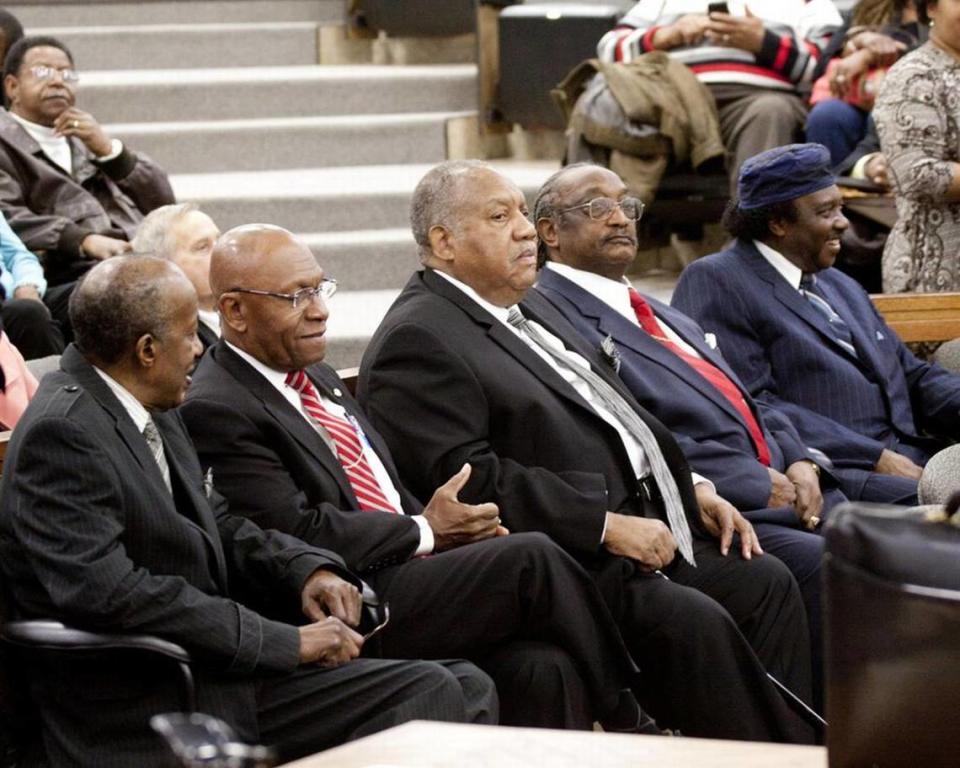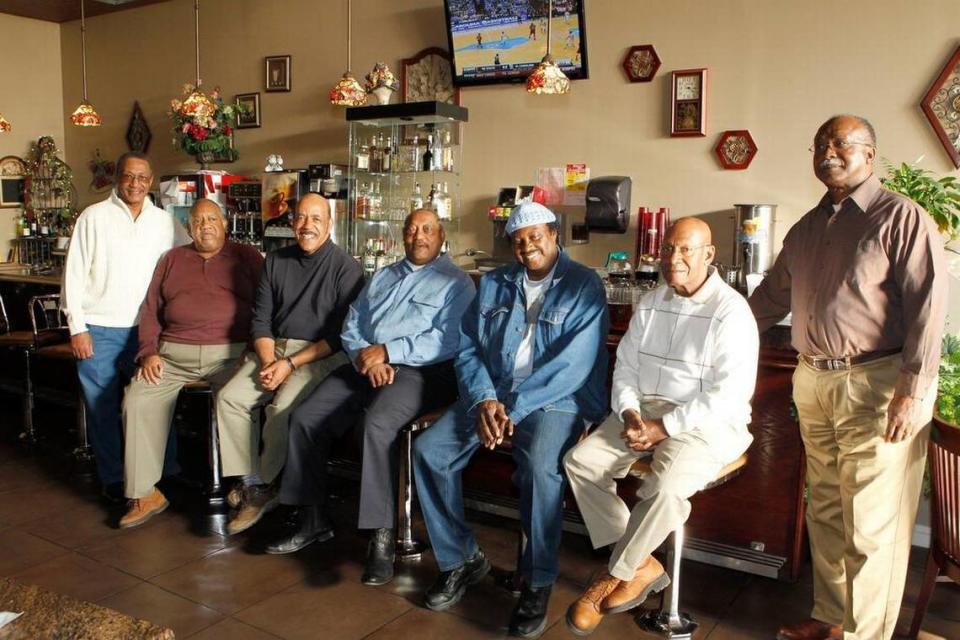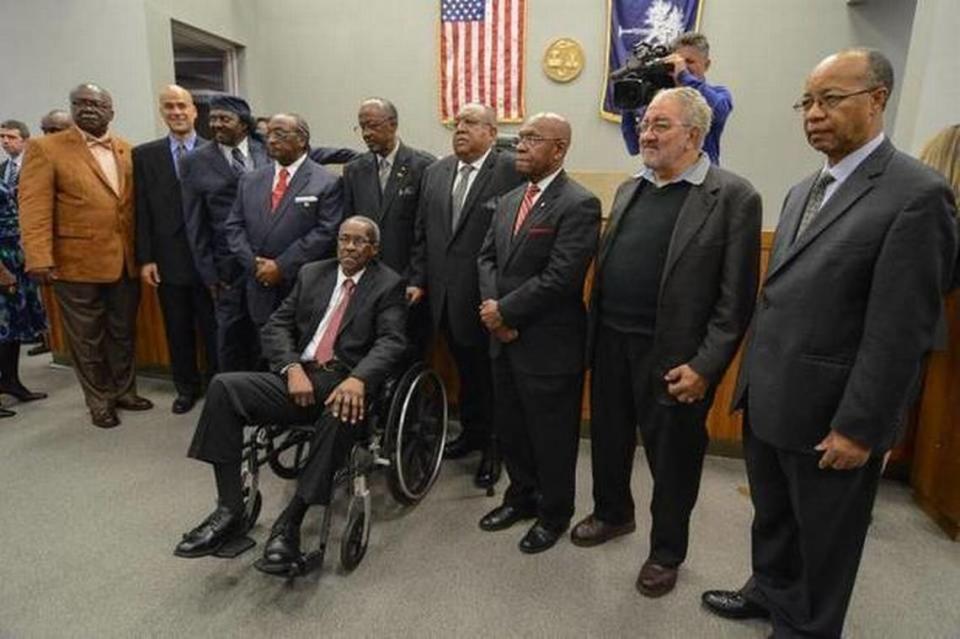Mack Workman, SC Friendship Nine civil rights legend, dies. ‘They changed the world.’
Mack Workman, an African-American teen in Rock Hill in the 1960s who went to jail protesting civil rights in South Carolina as a member of the Friendship Nine, has died, according to his family.
Workman died in New York Tuesday at age 81, his son, Anthony, said.
Mack Workman was 18 years old in 1961 when he and eight others spent a month in the York County jail after the group was convicted of trespassing after they sat at an all-white segregated lunch counter.
The “Jail, No Bail” movement from the group called the Friendship Nine sparked national attention and re-ignited civil rights protests around the South.
Anthony Workman, a history teacher in Virginia, said his father did speaking engagements through much of his later life so the Friendship Nine’s role in the civil rights movement would remain known for their crucial part of American history.
“They changed the world,” Anthony Workman said of his father and the Friendship Nine.
The Friendship Nine
The Friendship Nine in 1961 was a group of eight students at Friendship Junior College in Rock Hill, and a civil rights organizer. Surviving members are Willie “Dub” Massey, John Gaines, Thomas Gaither, and David Williamson Jr. Other Friendship Nine members who have died are Willie McLeod, Robert McCullough, Clarence Graham and James Wells.
Workman told The Herald at the 50th anniversary of the 1961 sit-in at the former McCrory’s lunch counter he sacrificed by going to jail to make lives better for all people.
“I look back on my life and know that what we did was right, and just, and it served to help other people have chances in life that they may not have had without protests,” Workman said in 2011. “People following us could see, from what happened to us, that it simply was wrong to hate. I look back on what happened all those years ago and I am proud of every one of us for standing up for what was right and trying to make America a better place for all people.”
One of the stools at Kounter restaurant on Main Street, the site of the sit-in and arrest, has Workman’s name on it to this day.
Williamson, another member of the Friendship Nine, said Workman sought an America where all people would be treated with dignity and respect.
“Mack was a great man who cared about others,” Williamson said.
The 1961 protests
The Friendship Nine sat down at the McCrory’s lunch counter on Jan. 31, 1961. The sit-in followed months of marches by civil rights protesters downtown in Rock Hill, about 25 miles south of Charlotte.
They were arrested, then convicted the next day and sentenced to 30 days in jail or a $100 fine. They chose jail to prove the point that segregation was wrong. They spent the month at hard labor at the York County Prison Farm.

In 1961, the protests and publicity were met with hostility from those who did not want integration. After word of the arrest and jailing spread, four other protesters who came to Rock Hill from other states were also charged, convicted, and jailed for a month in York County.
The late U.S. Congressman John Lewis from Georgia was a Freedom Rider who was beaten at a bus station in Rock Hill in May 1961 when he and other civil rights protesters stopped in the city.

Long afterward, the Friendship Nine were honored in Rock Hill and South Carolina. Rock Hill has a sign that honors the Friendship Nine along Main Street, and the city has a “Freedom Walkway” near the sit-in site. The S.C. General Assembly honored the Friendship Nine in 2015.
There have been a book, a play, and documentaries done about the group after The Herald did a series about the Friendship Nine marking the 50th anniversary in 2011.
Convictions vacated in 2015
In January of 2015, York County Judge John Hayes vacated the convictions of all the men, including Workman, in a historic court hearing in Rock Hill that received national media attention from CNN, NBC, the New York Times, and other outlets. Judge Hayes, who died last year, was the nephew of the original judge in the 1961 trial.
Led by 16th Circuit Solicitor Kevin Brackett, York County’s top prosecutor, officials at the 2015 court hearing apologized for the convictions that were based solely on the African-American race of those arrested for seeking equal treatment.

Mack Workman graduated from Emmett Scott High School in Rock Hill in 1960 before attending Friendship Junior College. Emmett Scott was the segregated school for Blacks in Rock Hill that closed in 1970 when schools were integrated. Friendship Junior College later closed.
Workman moved to New York as an adult in the late 1960s and spent a career working with the New York State Office of Family Services and Children and the Catholic Diocese before retiring, his son said. Workman and his late wife Ethel had three children: Anthony, Michelle, and Latarsha.
Funeral services will be held in New York but have not yet been set, his son said.

